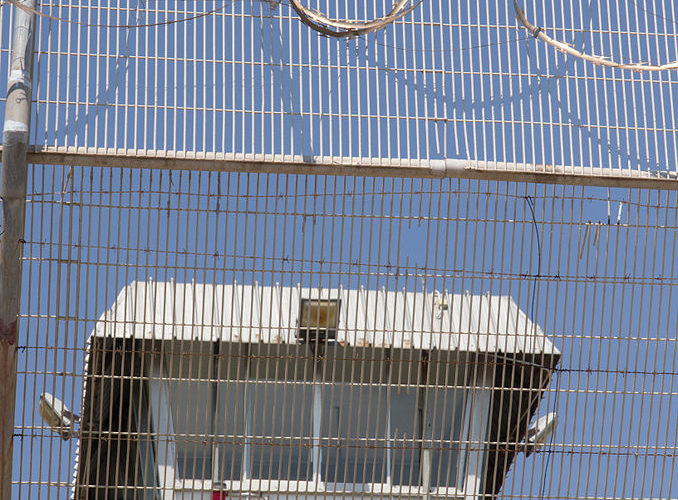A coalition of criminal justice and drug policy reform organizations is urging law enforcement officials to dramatically curtail arrests for nonviolent pot crimes to lower jail and prison populations as America now leads the world in confirmed COVID-19 cases.
The plan proposed by advocates would include ceasing arrests for cannabis offenses and releasing or granting clemency to those incarcerated for cannabis offenses. This would dramatically reduce the number of incarcerated nonviolent prisoners, whether sentenced or awaiting sentencing.
The organizations backing the plan are Marijuana Policy Project, Last Prisoner Project, Law Enforcement Action Partnership, Clergy for a New Drug Policy, Doctors for Cannabis Regulation, National Cannabis Industry Association, Students for Sensible Drug Policy, and National Organization for the Reform of Marijuana Laws.
The coalition of reformers sent a letter to the National District Attorneys Association, National Governors Association, National Sheriffs’ Association, National Association of Chiefs of Police, National Correctional Industries Association, American Correctional Association, and The American Federation of State, County and Municipal Employees. After applauded the public servants for their continued efforts through the pandemic the tone quickly changed to the fact that prisons and jails are breeding grounds for infections and disease due to close quarters and lack of ability for inmates and staff to practice social distancing.
“While Americans across the country are being encouraged to self-isolate, incarcerated people, by definition, are doing the exact opposite. Thus, all prisoners, whether young or old, are increasingly vulnerable to being infected with the novel coronavirus. In addition, because asymptomatic individuals can spread the virus, each law enforcement-civilian interaction includes a risk of transmitting the novel coronavirus to either party,” the letter read.
The crimes they want people released for are marijuana possession, cultivation and sale — “until the country is better able to prevent the spread of the coronavirus.” The organizations also noted that these kinds of actions are already taking place in Pennsylvania, Ohio and the U.S. Immigration and Customs Enforcement’s facilities.
The letter also reminded officials it’s not just in the interest of the prisoners’ health, but also the guards, their families and the communities both staff and most prisoners will eventually return to. Advocates argue by significantly reducing the number of inmates in local jails and prisons, you can ultimately reduce the risk of the coronavirus being spread among inmates, staff and the community.
“There is no justification for arresting and jailing individuals for marijuana offenses during this crisis,” said Steve Hawkins, executive director at the Marijuana Policy Project. “It is in the best interest of law enforcement and the greater population to cease marijuana arrests and reduce arrests for nonviolent crimes. It is also vital for individuals who are incarcerated for cannabis offenses to be released or granted clemency in order to prevent a potentially disastrous and deathly situation.”
Retired Baltimore Police Major Neill Franklin now serves as executive director at the Law Enforcement Action Partnership. He believes the risks being taken at the moment are unnecessary.
“COVID-19 is forcing us to seriously consider what constitutes a genuine public safety threat. Criminalizing people for marijuana has always been a waste of time and resources; now it’s also unnecessarily endangering lives by exposing more people to the crowded and unsanitary conditions of our jails and prisons,” said Franklin.
Sarah Gersten of the Last Prisoner Project pointed out the cruel irony for those behind bars right now during the outbreak, “Our constituents, many of whom are over the age of 60 and have underlying health conditions, are imprisoned because of a plant that has now been deemed an ‘essential’ service by jurisdictions across the country during this time of crisis,” she explained. “Releasing cannabis prisoners now is not only the right thing to do from a justice perspective, but also from a public health perspective.”
L.A. Jail Population Shrinks
The Los Angeles County Sheriff has proven to be ahead of the curve on the subject of releasing people to prevent an internal outbreak in the jail system. They announced on Tuesday they would be reducing the inmate population of the county’s jail system by 10 percent. Roughly 1700 inmates had already been released by the close of business on Monday before Sheriff Alexander Villanueva spoke of the plan Tuesday.
The focus of officials is now moving on to how they can handle bail deviation hearings and how they can minimize the flow of inmates to L.A. courts.
International Action
The idea of releasing prisoners to prevent furthering the pandemic inside correctional facilities is quickly sweeping the world. Iran just temporarily released 85,000 prisoners. This came after much scrutiny from the UN Human Rights Council’s Special Rapporteur to the Islamic Republic Javaid Rehman earlier in the month. At that point, the virus was said to have already swept through Iranian prisons.
“Overcrowding, poor nutrition and a lack of hygiene are also serious concerns. These issues indicate a high risk to prisoners’ health from malnutrition and disease. Recent reports indicate that the COVID-19 virus has spread inside Iranian prisons,” Rehman said.
In the United Kingdon’s 55 overcrowded prisons, over 9,000 inmates awaiting trial could be transferred to bail hostels. Also, those that remain will be forced to stay in their cell 23 hours a day in isolation from other prisoners regardless of the level of their threat to staff and other inmates.
Indian Cabinet Minister Anil Deshmukh took to Twitter to call for the release of 11,000 prisoners. The plan would include those who are currently sentenced to less than 7 years being released on parole for 45 days.
Advertising disclosure: We may receive compensation for some of the links in our stories. Thank you for supporting LA Weekly and our advertisers.

